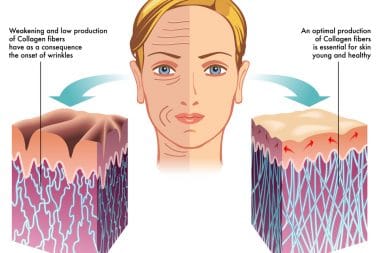Menopause is a natural period of life, but it can be pretty challenging. Not only can you experience weight gain, mood swings, and hot flashes, but you also can feel down because of all the changes.
Moreover, even the thought that you’re not as young as before can be frustrating – but it shouldn’t take over you. After all, menopause is only a new period of life – and it can be quite exciting. You just need some help getting through it.
In this article, you’ll find all the essential information about the main pitfalls of menopause and ways of dealing with them. Please remember that a doctor’s advice is necessary in some cases – don’t hesitate to seek help if you feel very bad.
Weight Gain
Many women gain weight around the time of menopause. This is due to the decrease in your metabolism and estrogen production. When going through menopause, you lose most of your estrogen, which leads to fat accumulation – that’s why you might notice a change in your body shape and experience weight gain.
How to deal with it:
To avoid weight gain, you need to keep an eye on your diet. A healthy diet can help you balance your hormones and prevent weight gain. Pay attention to veggies, leafy greens, and foods rich in calcium – the latter has a positive effect on your mood, as well as on bone health.
However, do not avoid foods rich in healthy fats, such as avocados, nuts, olives, and salmon, when trying to lose some weight. They will make your food more satisfying and filling, allowing you to stick to your weight loss plan without late-night cravings.
Another thing that can help is exercising regularly. Physical activity helps release endorphins, which lift your mood and give you more energy. It also enables you to burn off some calories, so you won’t feel bad about gaining some weight. Besides, exercise also helps increase bone mass, which is helpful if you have osteoporosis – something that many women experience after menopause.
If you are interested in more information, you can find a comprehensive menopause weight gain guide at https://betterbody.co/pages/menopause-weight-gain.
Depression and Mood Swings
Since menopause is accompanied by hormonal changes, it can lead to depressive episodes or mood swings. After all, hormonal fluctuations are known to affect the mind and mood. Fortunately, you can overcome this hurdle – the trick is to find the right approach for your individual case.
How to deal with it:
If symptoms of depression and mood swings bother you, talk to your doctor about it. There are many different ways to deal with them – from lifestyle changes to medications or hormone replacement therapy. This will depend on the severity of your symptoms, so a medical evaluation is necessary to determine what works best for you.
Generally speaking, in cases of mild mood swings, lifestyle changes are more than enough. Taking care of your diet, getting enough sleep, and exercising can significantly impact your overall well-being and the way you feel yourself. However, if you have severe symptoms, you might want to consider consulting therapy sessions and medications with your doctor.
Hot Flashes
Hot flashes are one of the most common symptoms of menopause – and they can be pretty uncomfortable and unpleasant for many women. During hot flashes (or night flashes that occur when you sleep), you may experience a sudden feeling of heat and rapid heart rate that may last from a few minutes to several hours at a time. Hot flashes are accompanied by sweating, making them even more uncomfortable and annoying than they might seem at first sight.
How to deal with it:
To manage hot flashes as effectively as possible, use the following tips:
- Don’t wear tight clothes. It can make hot flashes worse; instead, wear lightweight, loose-fitting clothing of natural materials.
- Stay hydrated. Drinking water can help prevent hot flashes.
- Stay cool. Using air conditioners or fans during the day and a “chill pillow” filled with water at night can help significantly.
- Try supplements. Vitamin E and B complex vitamins may help reduce hot flashes, but make sure to determine the dosage with your doctor.
- Regular physical activity may ease hot flashes and helps release hormones that reduce anxiety and stress.
- Practice deep breathing techniques. It is a very beneficial tool to calm yourself down when hot flashes start.
- Talk to your doctor. If your experience with hot flashes becomes more uncomfortable and intense, make sure to schedule an appointment with your doctor to discuss possible treatments for your case.
Conclusion
Menopause is a set of natural changes in women’s bodies, and the sooner you will accept them, the less stressful this experience will be for you. To achieve this, you need to know what to expect and be aware of its main pitfalls – so you know you are not going through this alone.
Weight gain, hot flashes, and mood swings are the most commonly occurring symptoms among menopausal women. Fortunately, you do not have to tolerate them if they cause too much discomfort for you, as there are various treatment methods to deal with each one of them. And do not hesitate to seek a doctor’s advice if you feel like symptoms are getting out of hand.








Reply